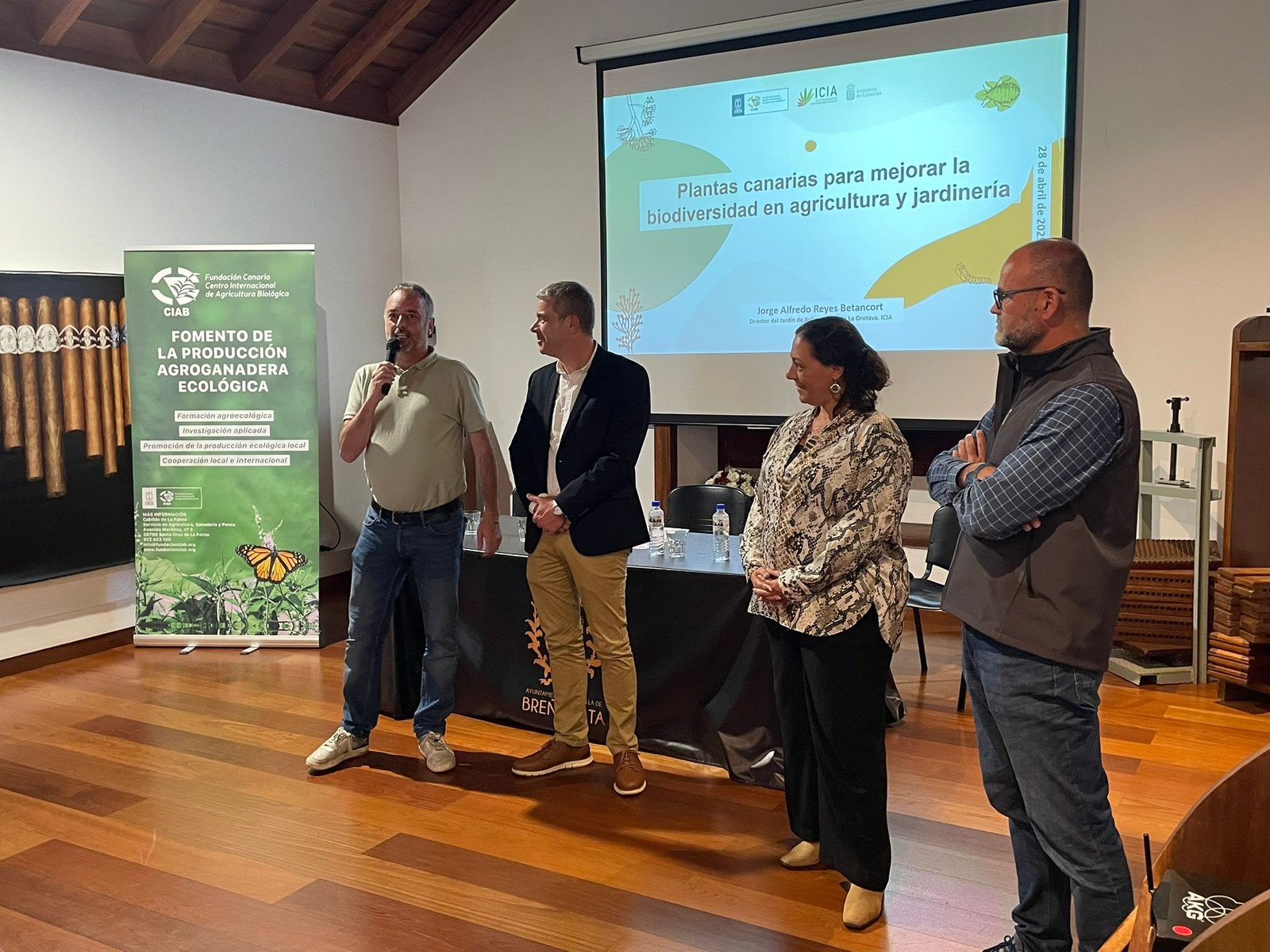
The advisor Alberto Paz emphasizes the importance of promoting this type of meeting with professionals in the field to professionalize the sector in a way that is adapted to their needs and the reality of their environment.
The Cabildo de La Palma, through the Canarian Foundation International Center for Biological Agriculture (CIAB), has organized a training day on the design of ecological infrastructures adapted to the Canary Islands, taught by Estrella M. Hernández Suárez, researcher at the Plant Protection Unit of ICIA; Nancy Montero Gómez, research collaborator of the Plant Protection Unit of ICIA, and Alfredo Reyes Betancort, director of the La Orotava Acclimatization Garden. The event is supported by the Canarian Institute of Agricultural Research, ICIA, and ADER La Palma.
The Minister of Agriculture, Livestock, Fisheries, Food Sovereignty, and Animal Welfare, Alberto Paz, emphasizes that «training in this ecosystem tool is of great interest, as it provides our fields with functional biodiversity that allows us to attract species with important ecological roles such as natural enemies for pest control.»
The advisor adds that «we have a strong commitment to promoting the professionalization of the sector and facilitating their training in relation to these issues so that they can improve their work adapted to their reality and that of their environment.»
As indicated by the president of ICIA, Janira Gutiérrez, the biodiversity associated with cultivation areas is essential to maintain the balance and health of the agricultural environment. For this reason, the research of the Entomology Area of the Plant Protection Unit of ICIA evaluates the effect of increasing plant biodiversity, through ecological infrastructures such as hedges, vegetative covers, and vegetation islands, on the conservation and promotion of natural enemies that regulate agricultural pests.
«The main purpose of these studies has been to identify native or adapted plant species to the edaphoclimatic conditions of the Canary Islands with the potential to design ecological infrastructures in the agricultural cultivation areas of the archipelago. Thanks to the results of these research experiences and collaboration with other entities in the agricultural sector in recent years, various training and dissemination actions are being carried out aimed at professionals in the sector,» she indicates.
Since 2024, the CIAB Foundation and ICIA have been promoting training in the use of ecological infrastructures on the island through informative talks and advanced courses with accreditation for cooperative and agricultural organization personnel.
This training day has been focused on Canarian plants to improve biodiversity in agriculture and gardening, biodiversity and biological control through conservation, and experiences in implementing ecological infrastructures adapted to the Canary Islands with initial results in agrosystems of Tenerife and Gran Canaria. At the same time, the aim is to start the study and experimentation of ecological infrastructures in crops such as proteas or coffee on the island.
Biodiversity in agriculture is a fundamental pillar to achieve a sustainable ecosystem over time, as it provides us with various ecological services such as soil erosion reduction, pollination, or biological pest control. Ecological infrastructures are a tool to obtain these ecosystem services, being of particular interest for the management of phytophagous insects, as it allows us to provide refuge for natural enemies and develop biological control through conservation.






